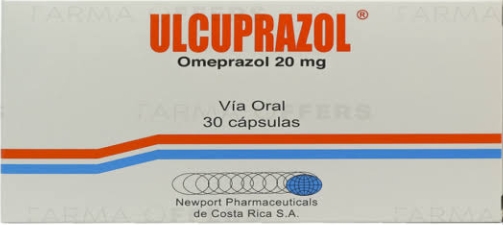Introduction
Ulcuprazol is a medication that has gained recognition in the field of gastroenterology. In this comprehensive article, we will delve into what Ulcuprazol is, its mechanism of action, its medical uses, potential side effects, and more.
What Is Ulcuprazol?
Ulcuprazol is a proton pump inhibitor (PPI) drug. PPIs are a class of medications that reduce the production of stomach acid. Ulcuprazol, which contains the active ingredient Omeprazole, is primarily used to treat conditions related to excessive stomach acid production.
Mechanism of Action
The mechanism of action of Ulcuprazol involves inhibiting the enzyme responsible for acid secretion in the stomach lining. By doing so, it reduces the production of gastric acid, thereby alleviating symptoms related to excess acidity.
Medical Uses
Ulcuprazol is commonly prescribed for a variety of gastrointestinal conditions:
- Gastric Ulcers: It is effective in healing and preventing the recurrence of gastric ulcers.
- Duodenal Ulcers: Ulcuprazol aids in the healing of duodenal ulcers, which are ulcers that develop in the upper part of the small intestine.
- Gastroesophageal Reflux Disease (GERD): It provides relief from the symptoms of GERD, such as heartburn and acid regurgitation.
- Zollinger-Ellison Syndrome: In rare cases, it is prescribed for the management of this condition, which causes excessive stomach acid production.
- Eradication of H. pylori: Ulcuprazol is used as part of the treatment regimen to eradicate Helicobacter pylori bacteria in cases where it’s a contributing factor to ulcers.
Proper Usage and Dosage
When using Ulcuprazol, it’s essential to follow your healthcare provider’s instructions closely. The typical dosage may vary based on the condition being treated. It’s usually taken before a meal, and the full course should be completed even if symptoms improve before it’s finished.
Potential Side Effects
Like any medication, Ulcuprazol may have side effects, including:
- Nausea: Some individuals may experience mild nausea when taking Ulcuprazol.
- Headache: Headaches can occasionally occur as a side effect.
- Diarrhea or Constipation: Changes in bowel habits can happen in some cases.
- Rash: Skin reactions are rare but possible side effects.
- Osteoporosis: Long-term use of PPIs like Ulcuprazol may increase the risk of bone fractures.
- Vitamin and Mineral Deficiencies: Prolonged use can lead to deficiencies in vitamins like B12 and minerals like magnesium.
- Kidney Issues: There have been reports of kidney problems associated with PPI use.
It’s essential to discuss potential side effects and any concerns with your healthcare provider.
Precautions and Interactions
Before taking Ulcuprazol, inform your doctor about any allergies, medications, or medical conditions you have. It’s particularly important to discuss potential interactions with other drugs, as PPIs can affect the absorption of certain medications.
Conclusion
Ulcuprazol is a valuable medication for managing various gastrointestinal conditions related to excess stomach acid. While it offers relief from symptoms, it’s crucial to use it responsibly under the guidance of a healthcare professional. Discuss potential side effects, precautions, and interactions, and adhere to the recommended dosage. Ulcuprazol can be a potent ally in the battle against acid-related gastrointestinal issues when used wisely.

